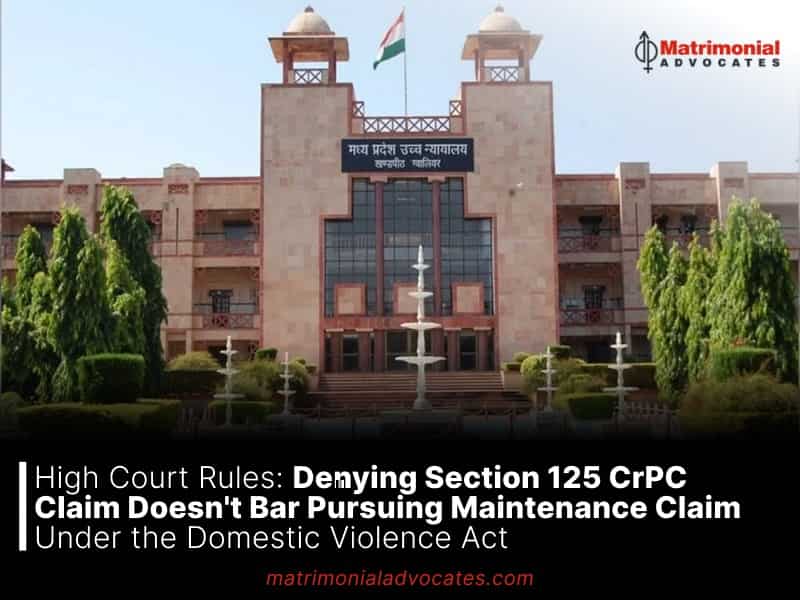
The Madhya Pradesh High Court has unequivocally stated that the rulings made by family courts concerning maintenance under Section 125 CrPC do not carry legal authority in matters governed by the Prevention of Women From Domestic Violence Act, 2005. In a solitary judge’s ruling, Justice Prem Narayan Singh underscored that pursuing maintenance relief under one statute does not hinder the pursuit of maintenance claims under another statute.
“…if, in proceeding under Section 125 of Cr.P.C., the application of wife seeking maintenance is rejected by the Family Court, such wife would not be precluded from claiming maintenance or other monetary remedy under the 12 provisions of the D.V. Act. The reasons assigned by the learned Family Court in rejecting the application under Section 125 of Cr.P.C. have no relevancy to the cases pending before the Courts dealing with the D.V. Act”, the bench sitting at Indore noted while dismissing the revision petition filed by the husband and his family against the interim maintenance of Rs 5,000/- awarded under a Section 23 application made under Domestic Violence Act.
In the specific case under review, the court expressed its stance that the family court’s findings regarding the reasons for living separately from one’s spouse lack significance when it comes to applications filed under the Domestic Violence Act. The court strongly affirmed that a judgment rendered under Section 125 CrPC, which follows an expeditious procedure, does not preclude the possibility of seeking relief under the Domestic Violence Act. This reasoning found additional support in the precedent established in the case of Nagendrappa Natikar v. Neelamma, (2014) 14 SC 452. Additionally, the court made a clear distinction from the case of Bhagat Ram v. State of Rajasthan, 1972 AIR (SC) 1502, as delineated below:
“Virtually, it (Bhagat Ram) was a criminal case which pertained to a criminal trial, wherein it is held that if an accused was acquitted or convicted in an earlier trial, he cannot be prosecuted for the same offence. However, since the proceeding of instant case related to maintenance in D.V. Act, it cannot be influenced by the findings of any other Court, which has been given in a finding applying summary procedure…”
The High Court also drew a clear distinction from the decision made by the Rajasthan High Court in Gyan Chand v. Smt. Rekha (2010), a case heavily relied upon by the revision petitioners. In the Gyan Chand case, it was established that findings from proceedings under the Domestic Violence Act were relevant in subsequent proceedings before the Family Court. Justice Prem Narayan Singh underlined that the current case marks a reversal of the situation observed in Gyan Chand, as the petitioner now seeks to apply the family court’s findings to the Domestic Violence Act proceedings. The court emphasized that this is not permissible, given that Section 125 CrPC proceedings follow a summary nature.
Citing Rajnesh v. Neha & Another, 2021 (2) SCC 324, the court also concluded that even if one court grants maintenance under one statute, it does not prevent the claimant from seeking maintenance under a different statute.
Background: Previously, the Judicial First Class Magistrate in Indore granted the wife’s application under Section 23 of the Domestic Violence Act and ordered the husband to pay Rs 5000 as interim maintenance. This decision was upheld by the appellate court and subsequently challenged in the revision petition. While contesting these orders, the revision petitioners argued that the family court had previously dismissed the wife’s application under Section 125 CrPC. According to the petitioners, the family court’s dismissal of the maintenance application was based on the finding that the petitioners had not prevented the wife from returning to her marital home, and she had chosen to live separately from her husband voluntarily. The petitioners believed that this family court finding could not be re-evaluated under the authority of the Domestic Violence Act.





